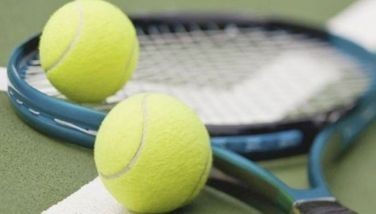Factors behind Olympic success
Virtually unnoticed in the middle of the ”Habagat” floods and, later, the Jesse Robredo tragedy, was the performance of the Philippines in the 2012 London Olympics. While we were not able to thoroughly survey the commentaries in the country’s broadsheets, two did comment in their editorials on how the Philippine delegation came home, medal-less and frustrated again, from the biggest gathering of the world’s elite athletes.
One broadsheet’s editorial on Sunday, August 19, 2012, offered some insights on the failure of our delegation to give a decent account of itself in London. Among other things, it compared the Philippine Sports Commission (PSC) with the Project: Gintong Alay (GA) which was the sports program under Ferdinand Marcos’s authoritarian rule.
While we are proud of the achievements of Lydia de Vega and Isidro del Prado in the SEA Games and Asian Games during their stint with GA and are grateful for the instructive experience provided by the GA administrators, it might be good to point out that 1991 (five years after the EDSA People Power Revolution), when the PSC was established and the years that followed were markedly different from the GA days.
To begin with, GA was, at least for several years, deliberately devoted exclusively to athletics/track and field while the PSC had, from day one, the unenviable and politically-charged burden of having to deal with 40 or so sports and sports associations and a variety of sports leaders and personalities under a democratic and consultative setting. Despite the scramble for limited funds and the inherent limitations of a highly deliberative and sometimes contentious system, the PSC, in tandem with the Amateur Boxing Association of the Philippines, did deliver in the Atlanta Olympics in 1996 (five years after PSC’s creation) the country’s first silver medal in Olympic boxing since 1964 in Tokyo, courtesy of featherweight boxer Anthony Villanueva. The silver medal, to repeat, was won in the Olympics, several notches above the Asian Games.
The monolithic political system of Marcos was certainly totally different from our present democratic system that considers the process just as important as the output or the means as important as the ends. In fact being sensitive to the importance of the process (of development) is one of the basic differences between authoritarian and democratic rule.
This deliberative and often times cumbersome system creates situations where sports associations and community-based or mass-based sports (that generally have zero media value), crowd each other out for government attention and support. This aggressive jockeying for support, which some people say is another way of dispensing patronage (in short, politics) is compounded by the conventional thinking that “sport is a by-product of development and not an engine of development”, i.e. sport can be supported only after society has taken care of more urgent concerns such as food security, livelihood creation, education and poverty alleviation.
This conventional thinking (as opposed to the non-traditional, albeit, ideal, construct of sport precisely serving as a stimulus to development) is reflected in the sports philosophy and policy of the country and brings to mind the article of Zaki Laidi, “Olympolitik”, which was featured in the Philippine Daily Inquirer’s Sunday, August 19, 2012 issue. Laidi is Director of Research at the Centre for European Studies at the Institute of Political Studies in Paris. The same article can be viewed in www.project-syndicate.org/commentary/Olympolitick-by-zaki-laidi.
In that article, Laidi asks, “Is there a link between economic power and Olympic medals?” Laidi says there are four factors behind Olympic power: population size, sports traditions, sports policy and level of development. Laidi states that taken separately none of these factors can explain a country’s Olympic record. Collectively however, Laidi emphasizes, their explanatory power is relatively large.
We can easily agree with Laidi when he links population size with Olympic success. It is certainly easier to choose a thousand elite athletes from a million people than it is from 100,000 prospects. This factor certainly puts China at a tremendous advantage. One recalls a joke that highlights China’s teeming millions: when you use the expression that “this person is one in a million”, that means there are 1,200 of such persons in China with its population of 1.2 billion. In contrast, that translates to only 100 such persons in the Philippines with its population of 100 million.
As in any general rule, there are exceptions. Australia, which has one of the most vibrant grassroots and elite sports programs in the world, owing to a solid public-private partnership, has a population of about 21.7 million making it only the 52nd most populous country in the world. In London, it however won seven gold medals, 16 silver and 12 bronze. India (which Laidi also used as a benchmark) has, like China, a population of 1.2 billion, failed to bring home any gold medal from London.
More on the factors behind Olympic power next week.
- Latest
- Trending




























